Check out our papers in Science and Current Biology!
To explore the NHS Ethnography and NHS Discography interactively, visit themusiclab.org/nhsplots.

What are the universal features of music? We collect ethnographic text and audio recordings from all over the world. We use them to determine the behavioral, social, acoustical, and musical features that characterize the world's songs. This provides a public resource to advance the scientific and humanistic study of music.
Music is a signature of the human experience. A ubiquitous, ancient, and uniquely human activity, music, and especially song, appears in most human cultures with staggering diversity. But two fundamental questions — whether there is underlying structure to the world’s music and how that structure varies across human cultures — have been perennially difficult to address. A key roadblock has been the lack of systematic, cross-cultural information about music. The Natural History of Song addresses this gap.
NHS Ethnography contains nearly 5,000 descriptions of songs and song performances from 60 human societies. It includes some 500,000 words of ethnographic text, including translations of over 2,000 songs' lyrics. A team of researchers obtained texts from the Human Relations Area Files and coded them into more than 60 variables. These include the demographics of singers and audience members; the time of day and duration of singing; the presence of instruments, objects, and special attire; and more. Research assistants also used keywords to describe the events leading up to a song performance, as well as its behavioral context, function, and lyrical content. These data reveal the behavioral and social structure underlying the world's songs.
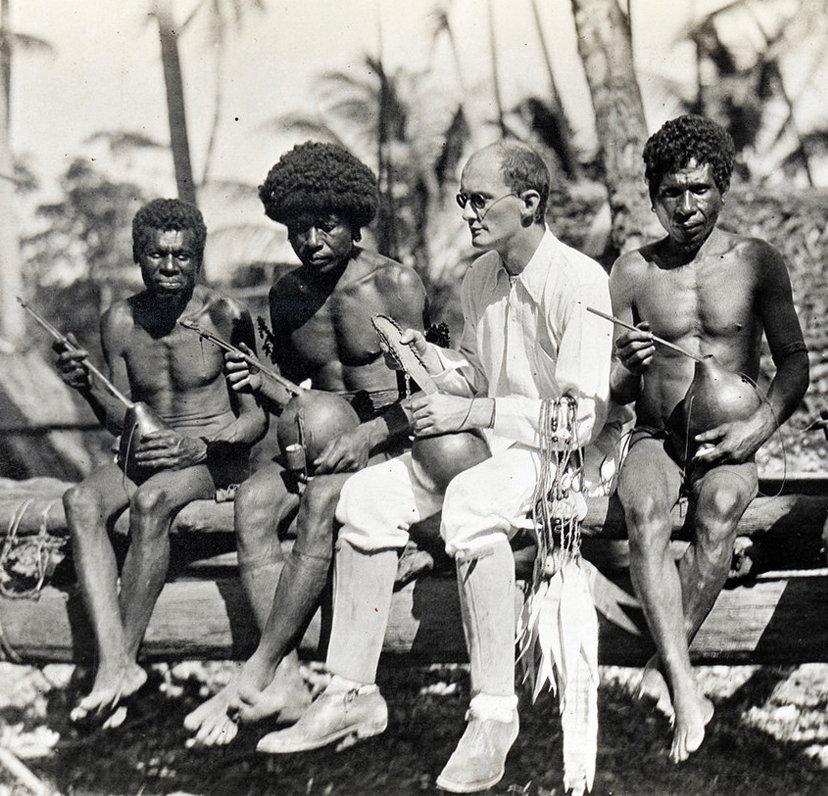
Anthropologist Bronislaw Malinowski conducting fieldwork in the Trobriand Islands in 1918. NHS Ethnography includes text from three Malinowski books and one academic article. [London School of Economics Library]
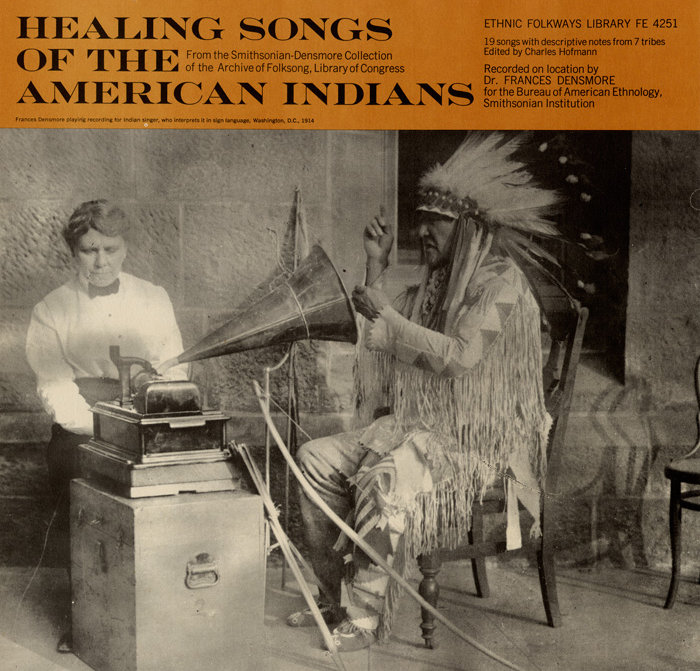
A 1965 album cover featuring anthropologist Frances Densmore and Mountain Chief (Ninastoko), chief of the Blackfoot people.
NHS Discography includes analyses of two Densmore field recordings and several other tracks from the Smithsonian Folkways label.
NHS Discography contains transcriptions and analyses of 118 field recordings from the 30 world regions covered in NHS Ethnography. The songs represent four common social contexts: lullaby, love, dance, and healing. We selected recordings by reviewing published collections of world music, digitizing out-of-print recordings, and contacting anthropologists and ethnomusicologists to obtain unpublished field recordings. Each song was transcribed into music notation. A team of expert musicians then listened to each song while reading the transcriptions and coded the song into 40 variables. For instance, they indicated the song's tempo, instrumentation, melodic contour, and whether the song has a clear tonal center. These data reveal the underlying acoustical and musical structure of the world's songs.
What will we learn from the Natural History of Song? For now, we have a couple of big questions:
What sorts of songs appear regularly across human cultures? Anthropologists have observed lullabies, dances, and religious music in many societies, but we don’t yet know what other core domains of human song exist — or whether a set of core domains exists at all. NHS Ethnography will help to answer these questions.
Within a domain, what do songs sound like? Psychologists have observed that songs for babies tend to share some features, like the slow tempi and falling melodic contours of lullabies, but we don’t yet know whether those features turn up reliably worldwide — or what sounds define other song domains. NHS Discography will help to answer these questions.
Eventually we aim to create a modular, open-access platform where scholars can collaboratively annotate and expand the Natural History of Song, and where anyone can rigorously test many other ideas about music.
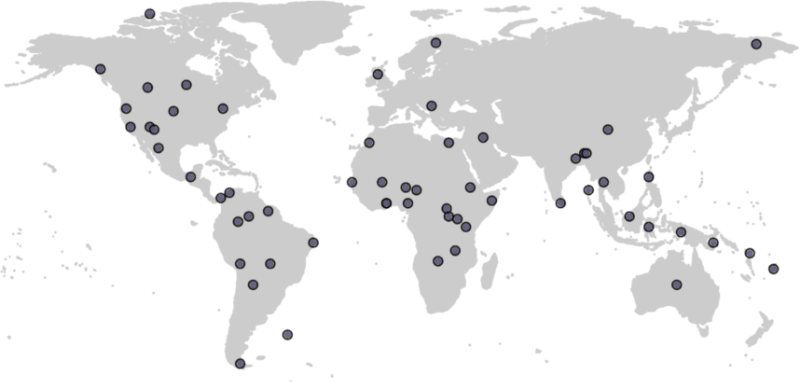
A map depicting the locations of the 60 cultures represented in NHS Ethnography.
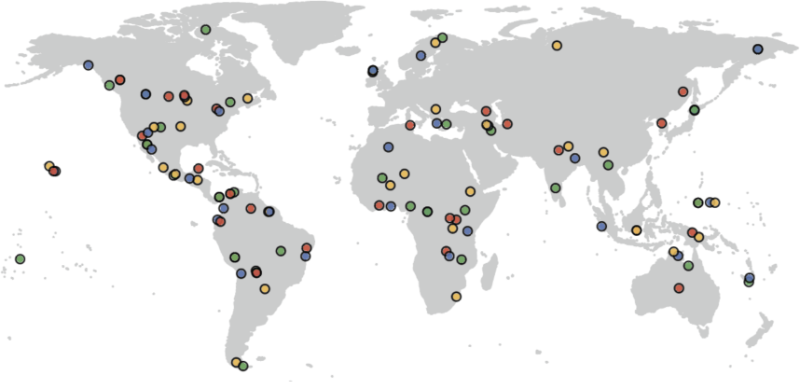
The locations of the 86 societies represented in NHS Discography, with points colored by the song type in each recording (dance, healing, love, lullaby).
Team Members
We are based in the Harvard Music Lab but our volunteers and staff hail from many universities and colleges worldwide.
Directors
Samuel Mehr (Harvard University)
Manvir Singh (Harvard University)
Luke Glowacki (Institute for Advanced Study in Toulouse)
Collaborators
Stephanie Atwood (Harvard University)
Scott Collins (Arizona State University)
Alena Egner (University of California, Los Angeles)
Erin Hopkins (Maple Heights, OH)
Rhea Howard (Harvard University)
Nori Jacoby (Columbia University)
Sonia Joseph (Princeton University)
Daniel Ketter (Eastman School of Music)
Dean Knox (Microsoft Research & Princeton University)
Max Krasnow (Harvard University)
Chris Lucas (Washington University in St. Louis)
Timothy O'Donnell (McGill University)
Daniel Pickens-Jones (Portland, OR)
Steven Pinker (Harvard University)
Samuel Sharp (Chicago, IL)
KeeHup Yong (Harvard University)
NHS Ethnography team
Zoya Ahmad (Harvard University)
Sonia Bourdaghs (Tufts University)
Liz Chen (Cambridge, MA)
Kara Emery (University of Nevada)
Stefanie Lakin (Lesley University)
Terry Lee (Harvard University)
Channah Leff (University of South Florida)
Connor McMann (University of Michigan)
Marcella Montagnese (University of Cambridge)
Nikki Okwelogu (Harvard University)
Adrianna Ratajska (Union College)
Allison Reid (Tufts University)
Gracie Shank (Tufts University)
Deena Tamaroff (Icahn School of Medicine)
Chris Tripoli (Skidmore College)
Katie Tutrone (Harvard University)
Jake Weiner (New York University)
Hunter York (Harvard University)
NHS Discography team
Paolo Ammirante (Psychology, Ryerson University)
Jeremy Astesano (Psychology, Haverford Collge)
Constance Bainbridge (Harvard University)
Richard Beaudoin (Music Theory, Dartmouth College)
Jake Bellissimo (Composition, Eastman School of Music)
Mila Bertolo (Brain & Cognition, Universitat Pompeu Fabra)
Marco Bertuccelli (Music Theory, University of Michigan)
Alma Bitran (Yale University)
Patricia Burt (Harford Community College)
Pinwen Chou (Lesley University)
Carla Colletti (Music Theory, Webster University)
Laura Crowe (Ethnomusicology, University of British Columbia)
Lana Delasanta (University of Connecticut)
Thomas Deng (Colby College)
Lee Dinetan (Mathematics, Institute for Advanced Study in Toulouse)
Danny Fratina (Composition, Berklee College of Music)
Eric Galm (Ethnomusicology, Trinity College)
Brisa Garcia (Saint Louis University)
Stephen Gomez (Music Theory, Indiana University)
Shaveta Gupta (Psychology, Unversity of Waterloo)
Rachel Hahn (Voice Performance, Boston Conservatory)
Katherine Healzer
Peer Herholz (Philipps-University Marburg)
NHS Discography team (cont.)
Kiara Holm (Vassar College)
Erin Hopkins (Maple Heights, OH)
Yu-Hsin Hung (Psychology, Lesley University)
Tenaaz Irani (Science & Psychology, University of Waterloo)
Claire Jones (Ethnomusicology, University of Washington)
Jayanthiny Kangatharan (Psychology, University of Winchester)
Stacy Jo (Harvard University & Berklee College of Music)
Hae Joo Kim (Ethnomusicology, University of Utah Asia Campus)
Max Kramer (Psychology, Oberlin College)
Kevin LaFleur (Jazz Performance, McGill University)
Jenna Lang (Harvard University)
Marc Laroussini (Composition, Eastman School of Music)
Harry Lee-Rubin (Psychology, Harvard University)
Kelsie Lopez (Psychology, Brown University)
Ken Luk (Music Theory, Eastman School of Music)
Ethan Lustig (Music Theory, Eastman School of Music)
Josua Lutian (Colby College)
Victoria Malawey (Music Theory, Macalester College)
Nashua Malko (Hampshire College)
Alexandra Medeiros (Williams College)
Alexis Mesa (University of Florida)
Jinous Mirzaagha (University of Lethbridge)
Pamela Moro (Anthropology, Willamette University)
Lin Ni (Neurobiology, Harvard University)
Tomoko Ozawa (Longy School of Music)
Cora Palfy (Music Theory, Elon University)
James Palmer (Music Theory, University of British Columbia)
Arianna Paz (Psychology, Harvard University)
Luke Poeppel (Walnut Hill School for the Arts)
Anushka Pujari (McMaster University)
Emilė Radytė (Neurobiology & Social Anthropology, Harvard University)
Nivi Ravi (Neurobiology, Harvard University)
Eva Regan (Music Education, Rochester, NY)
Nathan Robinson (Psychology, Harvard University)
Lev Roshal (Eastman School of Music & University of Rochester)
Rohan Sagar (Music Theory, Future Generations University)
Shayna Sands (Texas A&M University, Corpus Christi)
Patrick Savage (Ethnomusicology, Keio University)
Jessica Shand (Harvard University & New England Conservatory)
Dor Shilton (Tel Aviv University)
Eckbert Sierra (New England Conservatory)
Yona Stamatis (Ethnomusicology, University of Illinois, Springfield)
Sophie Standen (Cardiff University)
Yan-Jhu Su (Lesley University)
William Swett (Harvard University & New England Conservatory)
Ivan Tan (Eastman School of Music)
Louis Torracinta (University of Oxford)
Sarah Tyler (Cognitive Science, McGill University)
Wendy Uelk (Psychology & Human Development, Boston College)
Lisa Van Der Weert (Harvard University)
Micah Walter (Harvard University)
Anna Wang (Music Theory, McGill University)
Jingru Rachel Wang (University of Chicago)
Rachel Weissman (Music Education, Prince George's County, MD)
Yu-Jung Weng (SRH University Heidelberg)
May Xia (Wellesley College)
Angela Xiao
Feng Xing (Psychology, Johns Hopkins University)
Hunter York (Harvard University)
Julie Youngers (Psychology, University of Missouri)
Get the data
Most NHS data and materials are available at the project OSF page, https://osf.io/jmv3q/.

Correspondence
If you are interested in collaborating or learning more about the Natural History of Song, don't hestitate to contact us!
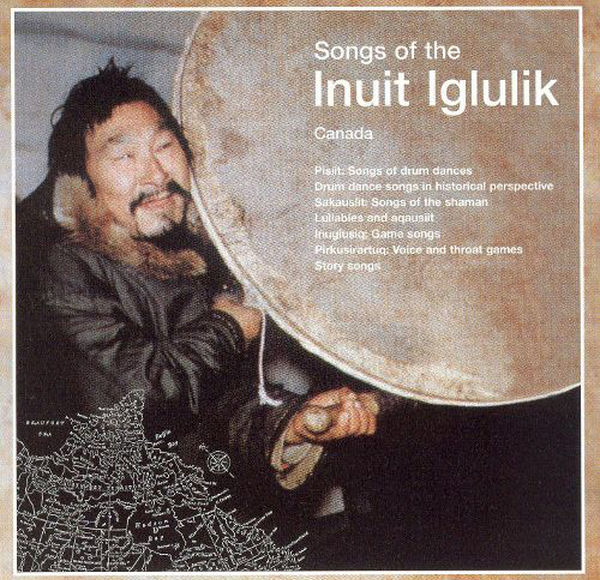
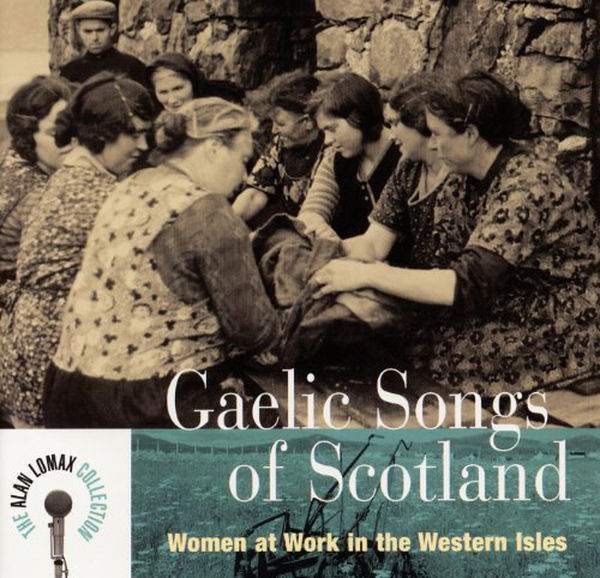
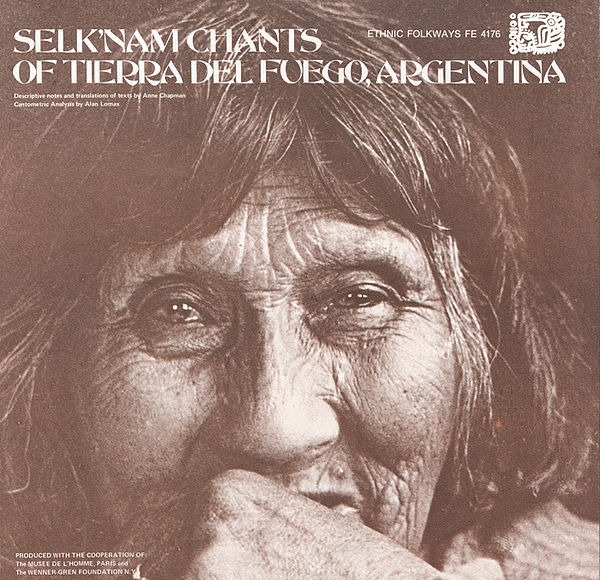
A selection of striking album covers. NHS Discography includes transcriptions and analyses of tracks from these and many other albums.
